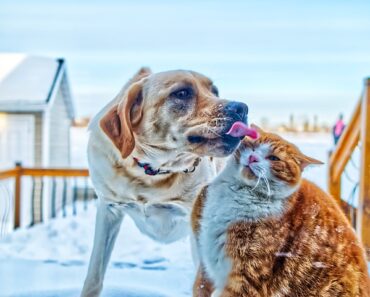Natural medicines can help your pet to alleviate several pathologies and to stimulate its immune defenses. An approach that attracts more and more dog or cat owners or other animals.

Why use alternative medicines for animals?
For some veterinarians, natural medicines represent real resources to treat your pet in parallel with conventional treatments or not. Their main asset is the fact that they have been developed to treat many ailments, pains and pathologies in a natural way, without any toxic or chemical products that can cause undesirable side effects.
These alternative treatments are particularly beneficial in the treatment of chronic diseases. However, in case of emergency, it is recommended that you make an appointment with a veterinarian. They are more effective with traditional treatment.
What characterizes alternative medicines is that they take into account not only the physical aspects of the animal, but also its past, its emotions and everything that has a major impact on its health.
1/ Homeopathy
Homeopathy was very successful in the early 1980s. In 2003, more than 10% of French veterinarians were already prescribing homeopathic treatments. If it is very popular, it is because it is taught in veterinary schools. It is also the only energetic medicine with an official status.
This natural medicine shows good results on certain chronic diseases such as kidney failure or osteoarthritis, motion sickness and behavioral disorders. In addition, pets take the granules easily and the indications are the same as for humans.
2/ Osteopathy
The practice of musculoskeletal manipulation, which aims to alleviate functional disorders, is supervised by veterinary training institutes.
Able to treat many conditions, osteopathy often allows to avoid taking medication. By focusing on the cause of an illness and not just the symptoms, this natural medicine also allows the problem to be treated at its source to avoid relapse. As some health conditions require conventional medical interventions, it can be used as a complement to other treatments.
Osteopathy is indicated for osteoarticular diseases such as lameness, osteoarthritis or hip dysplasia.
3/ Phytotherapy
The principle of phytotherapy is to use medicinal plants in all forms to enjoy the therapeutic benefits of their components.
In the wild, animals eat plants found in nature to treat specific ailments instinctively. By closely observing these animals, the medicinal properties of some plants have been discovered.
Phytotherapy can be used to strengthen the immune system, detoxify the body, treat anxiety and stress, regulate the activities of certain organs or systems, and complement a diet to strengthen the body.
Combined with certain plants, it can also have synergistic effects that can influence the long-term health of your companion.
4/ Acupuncture
Very familiar to humans, this ancestral Chinese treatment is becoming increasingly popular with animals, as it is very effective.
There are nearly 300 acupuncture points, each of which generates a specific reaction in the animal’s body. Professionals use electric current, needles, lasers, heat and injections for the treatment. Completely painless, this natural medicine allows the regeneration and healing mechanisms to function fully. It also stimulates certain nerve reflexes which in turn stimulate the organs.
The great advantage of acupuncture is that it can treat certain cases in which pet owners do not have the financial means to pay for surgery. Cases of paralysis and ligament rupture are good examples with excellent results. This medicine also allows for the relief of aging companions, allowing them to live out their lives without stiffness, joint pain and suffering.
5/ Aromatherapy
Aromatherapy consists mainly in using aromatic plant extracts (essential oils and essences) for therapeutic purposes. It differs from phytotherapy which uses all the elements of the plant.
Essential oils are used for several purposes: antimicrobial, antiseptic and anti-infectious such as revitalization, detoxification or regularization. In different forms (friction, air diffusion and internet absorption), they also optimize resistance to pathology, promote immune defenses, prevent contagions and infections.
In parallel, premium food oils such as salmon oil or brewer’s yeast have natural virtues that are effective on the health of animals.
6/ Naturopathy
For animals, naturopathy is based on the natural disciplines mentioned above. However, it is based on a more holistic approach to illness and the self-healing of the body through the mind.
A professional will often offer a comprehensive health assessment of your pet, taking into consideration your pet’s experiences, diet and mental health, before proposing a treatment. He or she will then suggest the use of flowers, plants, homeopathic remedies, aromatic essences or trace elements. Whatever the case, the approach will be 100% natural.
7/ Physiotherapy
Increasingly practiced in veterinary clinics, physiotherapy complements the more traditional treatments, particularly in the case of orthopedic and neurological disorders.
This medicine combines instrumental and manual techniques to diagnose and treat injuries and functional disorders. Professionals use techniques such as stretching, massage, electrotherapy, hydrotherapy and ultrasound. Physiotherapy can also be combined with other natural treatments such as herbal medicine or homeopathy to maintain your pet’s health over the long term.
In all cases, remember to choose the natural approach that best suits the needs and personality of your fur ball. Each case is specific and must be studied in its own right to determine the most appropriate treatment. Don’t forget to consult a professional veterinarian before starting alternative care.






